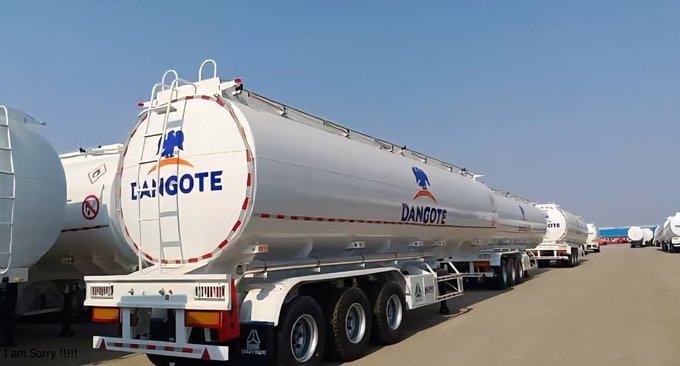The National Association of Road Transport Owners (NARTO) has raised concerns over reports that major fuel consumers, including filling stations and telecom companies, are bypassing established transport contracts in favour of free delivery services reportedly offered by the Dangote Group.
NARTO President, Yusuf Othman, voiced the association’s frustrations, saying the practice undermines legally binding agreements and threatens the livelihoods of thousands of fuel transport operators who rely on these contracts to repay bank loans and maintain operations.
Speaking to reporters, Othman explained that many NARTO members had signed formal service agreements with large corporate clients to handle fuel distribution using their fleets. In several cases, he said, these contracts were used as collateral for bank loans used to acquire trucks.
“We have our members who have signed agreements with so many companies,” he said.
“Some are informal, but many are formal contracts, and we used those formal agreements to collect bank facilities to buy trucks and serve those companies.”
According to Othman, the introduction of Dangote’s direct-to-consumer fuel supply, offered without delivery charges, has led many clients to abandon their agreements with NARTO transporters, effectively sidelining them from the distribution process.
“Now those agreements are at stake because a big brother is coming to supply directly to them, not minding the fact that they have signed agreements with us,” he lamented.
While the Dangote Group has not officially confirmed the reports, Othman said NARTO has received credible information suggesting the practice is ongoing, prompting widespread complaints from its members.
“If I sign an agreement with you for service by virtue of my 10 trucks, and somebody somewhere comes to do the same thing for you for free, it’s a very delicate situation,” he added.
Othman urged the Federal Government, particularly the Nigerian Midstream and Downstream Petroleum Regulatory Authority (NMDPRA), to intervene and enforce compliance with industry regulations. He referenced Section 212 of the Petroleum Industry Act (PIA), which, he said, prohibits such practices.
“This act is illegal by virtue of Section 212 of the PIA, we are calling on the Federal Government to take action before the situation worsens,” he stated.



